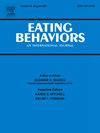暴饮暴食的人际关系模型在不同的种族群体中是否同样有效?
IF 2.4
3区 医学
Q2 PSYCHIATRY
引用次数: 0
摘要
大多数饮食失调(ED)的病因模型是基于白人个体的症状表现而建立的。本横断面研究考察了暴饮暴食的人际关系模型是否适用于少数民族新兴成人。参与者(N = 424;女性:65.8%)是通过美国的在线研究招募的。大学生包括:美洲印第安人或阿拉斯加原住民(20.3%)、亚洲人(13.7%)、黑人或非裔美国人(7.8%)、其他少数民族(13.2%)、西班牙裔或西班牙裔/拉丁裔(17.92%)和白人(26.42%)。五分之一(22.9%)的样本报告了中度严重的暴食症状。调解和路径不变性分析探讨了人际问题是否通过负面影响导致暴饮暴食,以及非西班牙裔、白人和少数民族参与者之间的关系是否不同。在整个样本中,人际关系问题与消极情绪和暴饮暴食显著相关,消极情绪对暴饮暴食有显著贡献(ps≤0.001)。负性情绪在人际关系问题与暴食之间具有显著的中介作用(95% CI = 1.05, 2.82)。多组结果表明,基于AIC/BIC值的约束模型具有较好的拟合性,模型间的主回归路径不变,组间无显著差异。结果表明,暴食的人际模型可能是理解少数民族大学生暴食机制的一个有用的理论框架,重申了在治疗中针对人际和情绪症状的重要性。未来的研究可能会考虑前瞻性地测试关联,并探索该模型在美国国内外不同种族群体中的特定类型的人际冲突和文化调节因素。本文章由计算机程序翻译,如有差异,请以英文原文为准。
Does the interpersonal model of binge eating function similarly across diverse ethnic groups?
Most eating disorder (ED) etiological models were developed based on symptom presentations experienced by White individuals. This cross-sectional study examined whether the interpersonal model of binge eating is applicable for ethnic minority emerging adults. Participants (N = 424; women: 65.8 %) were recruited via an online study in the United States (US). College students were: American Indian or Alaska Native (20.3 %), Asian (13.7 %), Black or African American (7.8 %), Other minority group (13.2 %), Spanish-origin or Hispanic/Latino (17.92 %), and White (26.42 %). One-fifth (22.9 %) of the sample reported moderately severe binge eating symptoms. Mediation and path invariance analyses explored whether interpersonal problems contributed to binge eating via negative affect, and whether relations differed between non-Hispanic, White and ethnic minority participants. Across the entire sample, interpersonal problems were significantly associated with negative affect and binge eating, and negative affect significantly contributed to binge eating (ps ≤ 0.001). Negative affect significantly mediated the pathway between interpersonal problems and binge eating (95 % CI = 1.05, 2.82). Multigroup results showed that the constrained model had superior fit based on AIC/BIC values and primary regression paths were invariant between models, indicating no significant differences between groups. Results suggest that the interpersonal model of binge eating may be a useful theoretical framework for understanding mechanisms of binge eating among minoritized college students, reiterating the importance of targeting interpersonal and mood symptoms in treatment. Future studies may consider testing associations prospectively and exploring specific types of interpersonal conflict and cultural moderators of this model for different ethnic groups within and beyond the US.
求助全文
通过发布文献求助,成功后即可免费获取论文全文。
去求助
来源期刊

Eating behaviors
Multiple-
CiteScore
4.20
自引率
3.60%
发文量
65
审稿时长
60 days
期刊介绍:
Eating Behaviors is an international peer-reviewed scientific journal publishing human research on the etiology, prevention, and treatment of obesity, binge eating, and eating disorders in adults and children. Studies related to the promotion of healthy eating patterns to treat or prevent medical conditions (e.g., hypertension, diabetes mellitus, cancer) are also acceptable. Two types of manuscripts are encouraged: (1) Descriptive studies establishing functional relationships between eating behaviors and social, cognitive, environmental, attitudinal, emotional or biochemical factors; (2) Clinical outcome research evaluating the efficacy of prevention or treatment protocols.
 求助内容:
求助内容: 应助结果提醒方式:
应助结果提醒方式:


